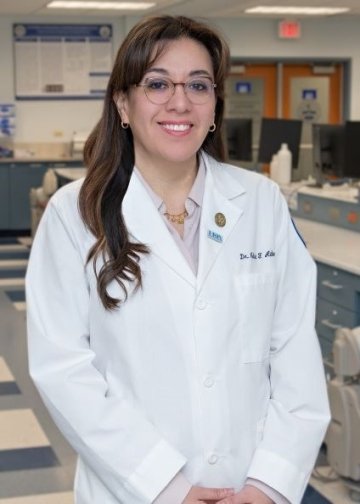
"We can’t control every outcome in healthcare. However, if we commit ourselves to evidence-based practice, we can reduce the number of poor outcomes."
What branch do you serve in and what is your rank?
I serve in the United States Public Health Service (USPHS), and my rank is 0-6/CAPT.
Years at Midwestern University:
I have been with Midwestern University for six years now – three as an adjunct professor, and three as an assistant professor.
Why did you choose to serve, and how did that influence your journey into healthcare?
I grew up in an extremely underserved area. The USPHS’ mission is to care for the underserved and vulnerable populations. This mission is originally what drew me to the service. When Hurricane Katrina made landfall, I saw how the USPHS was involved in caring for disaster victims, and it gave me another reason to join. Through the USPHS, I have been able to deploy to almost every major healthcare disaster since 2005.
What are your research interests?
My research interests are in managing anesthesia emergencies with the use of Clinical Documentation Support Systems (CDSS), and enhancing student registered nurse anesthetist (SRNA) learning with the use of animated curriculum.
What is the most rewarding part of being a member of the Midwestern University faculty?
As a certified registered nurse anesthetist (CRNA), I am only able to touch the lives of each patient I care for. As an instructor, I am able to touch the lives of every patient my students care for. This extension of care is the most rewarding part of being faculty at Midwestern University.
How do you engage students in the learning process?
I try to reach my students using the tools they are most familiar with. This next generation of students are used to consuming content via a screen or smart device. I feel it is my responsibility to provide anesthesia content in a way that reaches all generations. Because of this, I have developed conventional lectures with PowerPoint and PDF formats, as well as animated videos that cover the content in great detail.
What do you hope students learn from your classes?
Student nurse anesthetists have the tendency to separate information into distinct and separate topics. In other words, they learn anatomy as one topic separate from biochemistry, and biochemistry as a separate topic from pharmacology. In my classes, I hope to bridge each student’s knowledge of these topics with the bigger picture in mind and then teach them how to apply that in the clinical setting.
What do you hope students learn from your classes?
Through surveys and feedback, past students have made it clear that Midwestern University has supportive and caring staff and faculty. This combined with state-of-the-art facilities makes Midwestern University a great place to learn.
What lessons would you like students to take with them in their professional careers?
We can’t control every outcome in healthcare. However, if we commit ourselves to evidence-based practice, we can reduce the number of poor outcomes.
How does MWU support active service members and veterans?
MWU has been extremely supportive of my service. The University has provided a schedule that accommodates my active-duty obligations and deployments. In addition, the experience and knowledge I gained at MWU is carried over to my job as a clinician with the USPHS. In a sense, MWU’s support is bettering the lives of the vulnerable patients I serve as an Officer.



